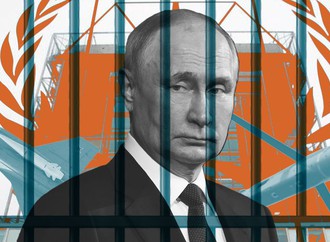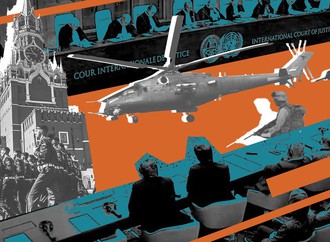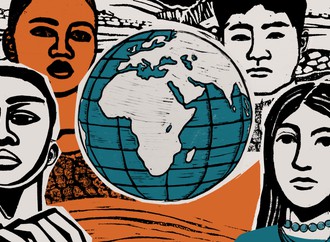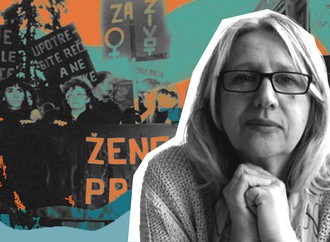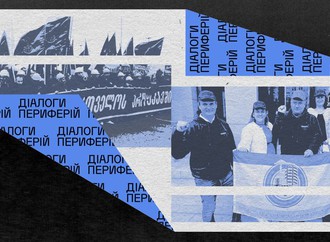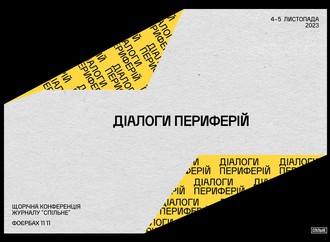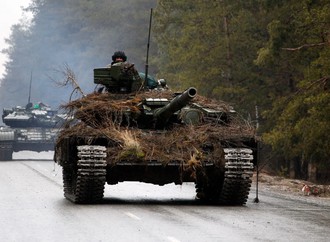We live in the time of rapidly escalating “frozen” military conflicts. Ukraine, Palestine, Yemen, Armenia, Sudan: status quo seemed immovable in these places, but now the “red lines” are crumbling while the front lines are coming to life. Within a few days, as a result of aggression and occupation, entire nations are plunged into a humanitarian disaster and come under threat of losing their political agency. The emergence of ever new areas of instability on the map of the world increases doubts about the UN, which continues to demonstrate constant inefficiency. Is it even possible to reform the international security system and save it from its final collapse?
Few people today would dare say that globalization under the banner of American hegemony has laid the groundwork for the defeat of the imperialist ambitions of the great powers. On the contrary, it intensified existing contradictions and exacerbated the destructive consequences of wars. Each new escalation reverberates around the world by destabilizing markets, disrupting logistic routes, causing waves of mass migrations, inflation, the diversion of resources to the military industry, and political crises.
In these circumstances, progressive, left-wing movements face enormous tasks incommensurable with their real political weight. What is to be done with the UN? How can the oppressed escape the trap of dependence shaped by the interests of key geopolitical players? How do we unify the left, stop arguing about “which imperialist is more progressive”, and build a global anti-imperialist movement? Finally, what can we do to ensure that our world is no longer dominated by “the law of the stronger”?
Participants of the panel discussion at the Feuerbach 11 conference, this year dedicated to the overarching theme of Dialogues of the Peripheries, shared their thoughts on these issues and on the conflicts of our time. Palestinian political scientist Dana El Kurd, former UN employee in Indonesia and Thailand Chelsea Ngoc Minh Nguyen, Taiwan-based publicist and editor Brian Hioe, and Ukrainian social anthropologist Volodymyr Artiukh took the floor during the event.
The discussion was moderated by historian and activist Hanna Perekhoda.
A World Falling Apart: The Situation in the Middle East, in Southeast Asia and the Russian-Ukrainian War
The escalation of military conflicts today is not accidental; rather, it constitutes a trend. In it, we see the result of the failed policy of interventionism, which often only contributed to polarization and explosions of violence. According to political scientist Dana El Kurd, the current war in Gaza is primarily a consequence of U.S. policy that completely ignores Israel’s intentions to annex the Palestinian territory and deprive the local population of their right to self-determination.
U.S. intervention in the political processes on the territory of Palestine has led to the intensification of internal conflicts, increased level of criminalization and repression, and unrealistic conditions of peace agreements Israel imposed on Palestinians without taking their interests into account. The catastrophic situation is further aggravated by the fact that other imperialist states, namely Russia and Iran, also conduct interventions in the region. Dana El Kurd believes that the West – which directed its efforts at localizing the conflict rather than ending it – has lent full support to one side, Israel, thus depriving the other of negotiating power. Negotiations took place only for the sake of preserving the status quo, were not expanded, and did not include representatives of civil society.
Taiwan is in a similar situation. This country, one of the global hubs of semiconductor production, has found itself between a rock and a hard place: the USA and China, which are waging a technological war with each other. These superpowers, publicist Brian Hioe says, actively influence Taiwanese elections, lobby for their interests, and use economic leverage.
The United States supplies Taiwan with weapons and says it will not permit the occupation of the country; however, Hioe adds, U.S. government officials “would like Taiwan to simply disappear”, as they feel that its very existence creates problems. At the same time, China actively threatens Taiwan: conducts military exercises near its shores, violates the country’s airspace, and prevents Taiwanese from visiting their family members on the territory of the PRC. All of this provides fertile ground for speculations by both American and Taiwanese right-wing forces. Hioe notes that the position of the left movement in the country is quite weak. Taiwan’s strong dependence on American and Chinese foreign policy is also the reason why, despite long discussions, the island nation has not officially declared its independence from China to this day.
Being geographically close to Taiwan, Vietnam is also an object of China’s encroachments. The two states are involved in a territorial dispute about their boundaries in the South China Sea, the location of large oil fields. In May 2023, Chinese warships attempted a month-long blockade of Vietnam’s exclusive economic zone – where, incidentally, Russian state energy corporations operate. According to former UN employee Chelsea Ngoc Minh Nguyen, due to both China’s aggressive conduct and longstanding U.S. sanctions, Vietnam is forced to turn to Russia, its strategic military and economic partner since the Cold War. This dependence explains why the Vietnamese government remains neutral in the Russian-Ukrainian war even as, Nguyen says, Vietnam’s civil society predominantly supports Ukraine.
Overall, global dynamics demonstrate that U.S. hegemony is in deep crisis. According to Volodymyr Artiukh, the illogical and inconsistent military and political U.S. interventions of recent decades, in particular in Iraq and Afghanistan, achieved only limited success and failed to strengthen the global order, contributing to its fragmentation instead. The crisis of the U.S. elites and internal U.S. problems increase the appetites of other players as governments of countries demonstrating imperialist ambitions sense the weakness of the major states, overestimate their own strength and start wars, counting on quick success and the establishment of a new status quo.
Case in point: the Russian-Ukrainian war. The current stalemate at the front and the fact that Ukraine does not have significant resources that would allow it to change the situation in its favour are closely related to the internal situation in the U.S. – and this situation is not conducive to Ukraine obtaining the military support it requires. Artiukh notes:
At this stage of the war, the tragedy of US-centrism impacts the situation profoundly. It is obvious that the USA does not have a clear plan of how to continue supporting Ukraine or a vision of how this support should evolve. We don't know if anyone will formulate such a plan before the critical moment arrives. Now, essentially all decisions are shifted onto the Ukrainian government, onto the Ukrainian military leadership, which, from the perspective of the Ukrainian political context, poses an additional problem. To sum up, we see a huge number of failures that deepen the crises in various countries. We have witnessed similar dynamics before: for example, between Israel and the US, where lack of stable governing and proper planning is patched up with a military intervention, without a strategy for the future.
In other words, there are no grounds for optimistic projections and hopes for de-escalation in the near future. According to Nguyen, the world is becoming more and more fragmented and, in recent years, has been characterized by the rise of nationalist sentiments in international politics. The Global South is not an equal participant in democratic processes; its voice is ignored. As El Kurd and Hioe observe, everything hinges on the decisions of big players who possess no real political will to stop the wars.
There is no cause for optimism in the case of Ukraine either. Volodymyr Artiukh sees little chance of a ceasefire agreement between Russia and Ukraine, as the Russian elite is still confident it can win the war and “find a definitive solution to the Ukrainian problem”. The ambitions of the Russian elite, the researcher thinks, extend far beyond simply retaining power. For Chelsea Ngoc Minh Nguyen, the situation in Ukraine is similar to that of Vietnam during the Cold War: a gruelling conflict with a major geopolitical player. In her opinion, Ukraine should look for alternative tools that would enable it to ensure its sovereignty, or else it will find itself trapped amidst the manoeuvres performed by Russia and the West.
The Place of the United Nations in the Current Global Security Crisis
The new wave of escalations is not only due to the crisis of American hegemony. Another reason why wars are becoming a common occurrence and why nobody can stop imperialist aggression is the crisis of the present-day international security system built around the United Nations.
As Chelsea Ngoc Minh Nguyen points out, there have been several attempts at reforming the UN. In 2015, France and Mexico proposed that the veto right of the UN Security Council members should not apply to cases involving crimes against humanity, war crimes, and genocide. The initiative was supported by approximately a hundred member states of the UN but failed because of resistance from Great Britain and the United States. Another UN reform effort concerned making India and Brazil permanent members of the UN Security Council, thus expanding the number of states represented there. However, the initiative was opposed by other members of the Security Council, including in particular China, which India has territorial disputes with and competes for leadership in the region against.
In effect, the antagonism of major powers, whose conflicting interests clash within the UN, prevents the organization from functioning effectively, as illustrated by – Nguyen points out – the UN’s inability to stop the war in Gaza. Thus, the U.S. blocked a resolution (put forward to the Security Council by Brazil and supported by France and Japan) calling on Israel to stop its military operation and provide humanitarian corridors. As a result, El Kurd and Hioe add, the principles of international security established after World War II are used very selectively, and such countries as Taiwan or Palestine do not receive sufficient international assistance.
The stagnation of the UN whets the appetites of imperialist states, especially Russia, which, Artiukh states, has declared its messianic goal of changing the world order. According to the researcher, the Russian state effectively reproduces the U.S. policy in Afghanistan and Iraq and lays claim to the role of a global sovereign “fairer” than the United States. The consequences of Russia’s interventions, however, are no less catastrophic.
Despite this, Nguyen says, today the UN constitutes the only mechanism that makes it possible for the countries of the Global South to report the aggression they suffered. International law gives post-colonial countries legitimacy in conflicts with great powers. For instance, Vietnam, in its territorial waters dispute with China, understandably avoids a military solution, preferring instead to appeal to international institutions. Nguyen emphasizes:
Outside the UN system, Palestinians have no mechanisms through which they could realize their right to self-determination and statehood. The same is true in the case of Ukraine: despite the limited humanitarian assistance, the UN system is the only real way for Ukraine to report Russian aggression against it.
Powerless and Atomised: The Left Trapped by the Logic of Realpolitik
The weakness of the UN obviously requires the development of alternatives that would contribute to the establishment of a just peace without imperialism. On the path leading to these alternatives, though, the left faces colossal obstacles, foremost among which is its lack of political power. Chelsea Ngoc Minh Nguyen notes:
As to the possibility of progressive changes, I think the problems of the left extend beyond a lack of vision. It also concerns the reality: the reality in which it is impossible to implement a specific vision at the international level. To achieve this, you need political power, representation through political parties, governments that could turn an alternative vision into action.
However, former UN employee says, upon entering the realm of international politics leftists often fall into the trap of realpolitik: a reality where the fate of your state hinges on the outcome of the confrontation between imperialist blocs. Many left-wingers and government officials in the countries of the Global South backed Assad out of cynical geopolitical calculations: namely, that supporting the Syrian dictator would undermine the monopolarity established by the United States. Unfortunately, Nguyen says, among the countries of the so-called Third World there are no truly progressive leaders capable of breaking the vicious circle of dependence. As to the left itself, it fractures with each new escalation; this, Volodymyr Artiukh points out, has a disastrous effect on the left’s ability to analyse the military situation on a global scale and in a systematic way. Artiukh sums it up as follows:
All around me I see the terrible fragmentation of the left following every conflict. This is also true about mainstream intellectuals globally, who are also fragmented, their opinions divided. We are losing the opportunity to offer a vision or even a basic analysis of the situation. Instead of being limited to personal opinions expressed by this or that individual, our analysis should generate new knowledge. At the level of researchers, lecturers, alternative intellectual platforms, I see a dearth of analysis carried out on appropriate scale.
At the same time, Dana El Kurd adds, authoritarian regimes demonstrate an opposite trend: they are increasingly consolidating, cooperating, and adopting each other’s experience.
Another problem faced by the left is atomisation and lack of public awareness, which makes it difficult to build international solidarity among the victims of imperialism. Thus, in Ukraine, Artiukh points out, there is no political debate about the war in Gaza; the Ukrainian government officially supports Israel, with the public discourse following suit. One of the reasons for this lies in how Ukrainian society sees the defence of Ukraine, the country’s place in the world and “civilizational” dynamics in general. For many Ukrainians, Israel is a successful “civilized” country that has been defending itself against the “uncivilized”, “aggressive” Arab world for decades. Dismantling such stereotypes is an arduous task; nevertheless, given the similarity of the Ukrainian and Palestinian situations, civil society activists, according to El Kurd, have some room for manoeuvre.
Despite their fragmentation, lack of systematic analysis, and absence of power, the researcher does not believe that progressive forces have nothing to offer. As El Kurd highlights,
“There is no need to invent anything. Ask Ukrainians what they want, ask Palestinians what they want. That, right there, is progressive policy”.
In other words, alternatives exist, and they are voiced by the peoples affected by imperialism. What the left must do now is make the voices of those who are oppressed and threatened by imperialist aggression strong and loud.
***
In the words of one Ukrainian diplomat – as historian Hanna Perekhoda reminds us – the more the allies invest in supporting Ukraine, the more the interests of the allies become Ukraine’s interests and Ukraine’s interests become the interests of the allies. It is unlikely that the diplomat in question meant that Ukraine’s interests now include the construction of a wall on the Mexico border (a demand put forward by some Republicans in Congress in exchange for unblocking assistance for Ukraine). The capabilities of Ukrainian resistance are severely limited by dependence on NATO states’ support. Because Ukrainian leadership overestimated the West’s strength and its political will to help Ukraine in the confrontation with Russia, Ukraine currently finds itself in the trap of “positional war” with no clear way out of it. Not only Ukraine faces a difficult geopolitical situation; the peoples of Taiwan, Vietnam, Palestine, Armenia and many other states are in the same position.
It should be acknowledged that we live in the world of imperialism, in the world of weak international organizations, and that we cannot change it in a short-term perspective. In order for the alternatives advocated by the left forces to become real, the left needs, at the very least, to undertake a systematic analysis of global processes (currently lacking due to a split among intellectuals), and, in the best-case scenario, acquire meaningful political agency.
Paradoxically, at the local level the left usually understands existing problems and knows how to call attention to them by ensuring that the oppressed receive representation. However, there is a lack of insight and, most importantly, lack of infrastructure that would enable us to lay the foundations for global anti-imperialist transformations. In these conditions, with progressive alternatives forces weak and helpless, hopes that wars will cease in the near future – and not resume again – remain a fantasy.
It is good that we discuss and admit our weakness. It is good that we realise that changing our world requires gigantic, monumental efforts. Now we need to start doing the work that has to be done – and follow through on this commitment.
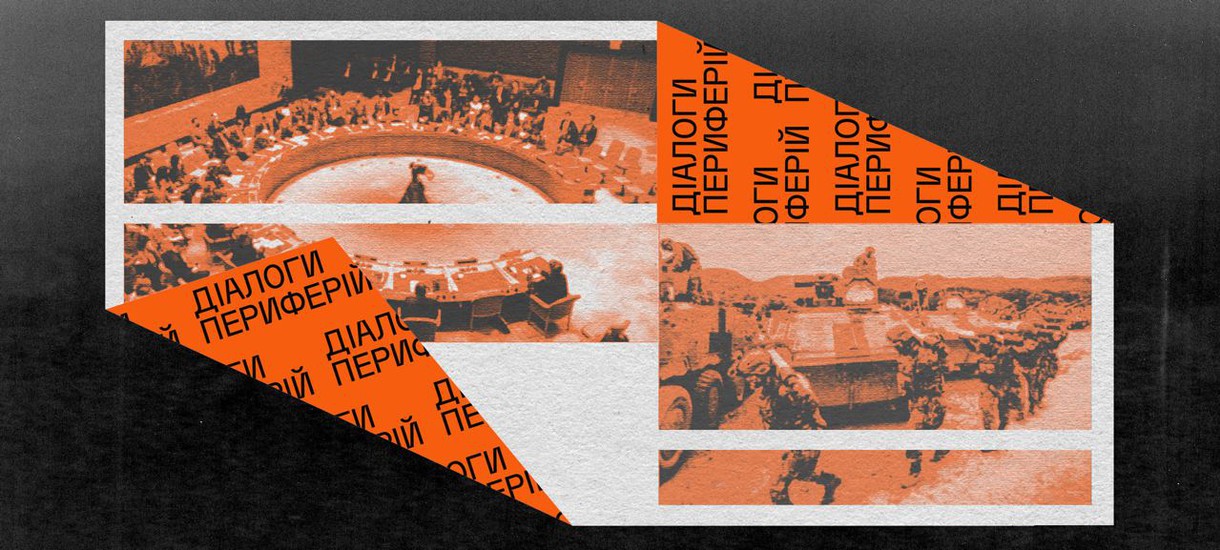

-1_category.png)

